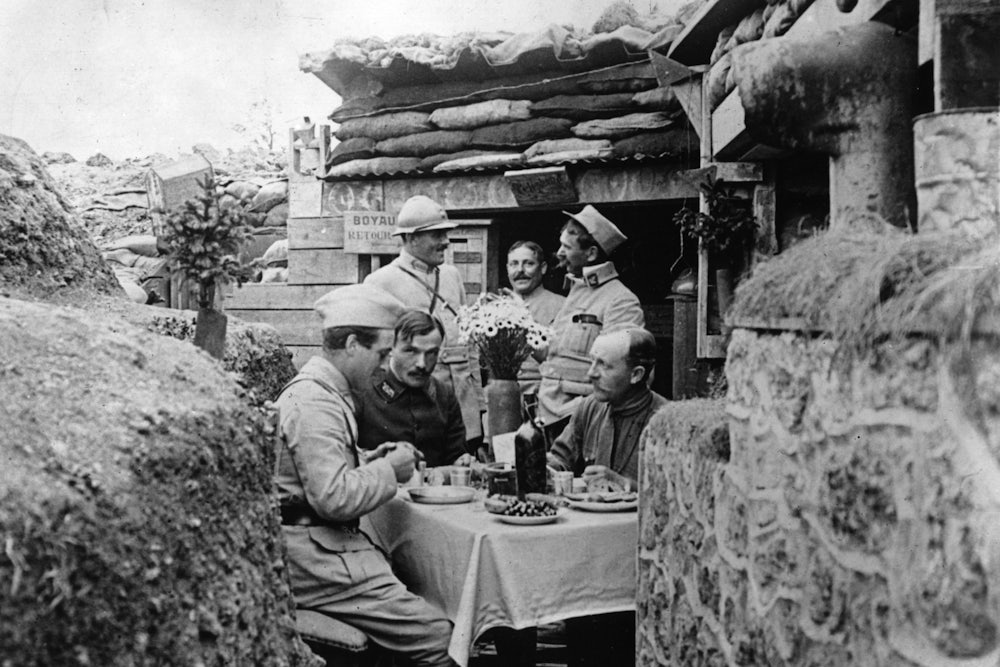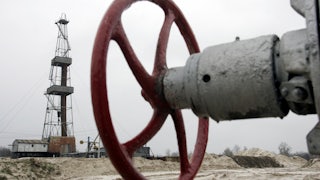American opinion in its anxiety to find who struck the match that started the blaze of war has tended to ignore the nature and quantity of the fuel. There could have been no war without those latent and brooding national feelings which the occasion touched off into flaming passion. Governments might start the conflict, but no government on earth, not even the most absolute, could keep it going with that intense animus of which every day’s news gives evidence. Only a collective consciousness could do this, a consciousness, deeper than anything the individuals could articulate in words, that something is being defended or asserted in value far beyond mere material wealth.
Here in America we hear only the attempts of individuals to express this feeling. The chief reason why American opinion goes so heavily to the English side is that the English are articulating themselves not in the language of national feeling, but in the language of morality, which America can perfectly understand. In contrast to this talk of international good faith, duty and democracy, the German considerations of Kultur sound to us almost grotesquely unreal, fantasies of ideals and ideas. And when we do not understand people, we, of course, if we are human, suspect either their sincerity or their sanity.
The point that generally escapes us is that this English interpretation is unique. If the French felt the need of justifying their place in the war, or if we could get at the apologetic of the other Continental nations, we should find that they all tended to interpret themselves in the terms which the Germans are using, that is, in terms of national culture rather than morality.
In failing to appreciate this fact, American opinion is bartering away its opportunity to judge of the directing animus of the war for an easy and superficial explanation in terms of personal wickedness. We have succumbed to the temptation of feeling holy. We have put our appreciations outside of certain deep currents of the destiny of Western civilization. We are staggered at the emotional running-amuck of the German professors; but what are we to say of our own professors, who exhibit an emotional shallowness and defective social psychology which are even less defensible?
In the popular American mind “culture” means a priggish admiration for the art and literature which is esoteric to the general public. Whether this idea is a natural reaction against the artificial pursuit of foreign and antique cultures, or a democratic protest against the invidiousness implied by the Matthew Arnold cult, the prejudice makes it very difficult to talk intelligibly in this country about “national cultures.”
Yet we have no better term to express that compound of temperamental traits, moral attitudes, artistic styles, literary values, customs, manners, which make the various nations, or groups of nations, so strikingly different one from another. We know that they are different, but we tend constantly to ignore how extraordinarily tough and homogeneous each cultural fabric is.
We talk as if we thought of the French merely as human beings living in a geographical section known as France. It is something of a shock to be immersed in France and discover that the people are French human beings, with a whole system of values and attitudes which weave together into a pattern quite different from our own. Their very minds move differently. Words and phrases show themselves as quite untranslatable, simply because we Anglo-Saxons do not look at the world in the same way, have not so plotted out our experience. The parts of their map of life are colored differently from ours. Our different languages are not simply different sounds for the same ideas and conceptions. They actually embody different social and individual attitudes, different valuations, different meanings.
Through an interweaving of sociological and physical causes too complex to unravel, national cultures have grown up side by side in Europe. Some subtle influence stamps everything, from look of town and countryside to personality of the individual, with the national quality. A forest in France is a French forest, unmistakably, uniquely. A German village is a village with a design and personality of its own.
It is the intense self-consciousness of a common culture, of common language, attitudes and appreciations, which binds a Continental people together. It is this that they value and which they wish to assert. Rulers are not thought of as individuals governing other individuals, but as agents of this common will and desire. A dynastic house is a symbol of the struggle and evolution of this common consciousness. These are the terms in which the political and social thinking of the Continent is carried on. It bespeaks a somewhat childish ignorance of social psychology to pretend that this feeling is all a delusion carefully cultivated for sinister purposes by Machiavellian rulers.
We are all aware how enormous has been the growth of this cultural self-consciousness during the last forty years, since the attainment of German and Italian political unity, both intense cultural unities. The spread of education has carried the national values to classes untouched before. Growing economic and industrial power has brought the nations into sharp competition, and thus has given them a sharper sense of the necessity of asserting themselves. It has been assumed that improved means of communication, trade and intercourse would all operate to break down national differences.
But contact with groups with values and attitudes different from our own may produce not sympathy but a keener realization of our own values and a deeper irritation at the alien ones. This seems to be what has happened. Business, machinery, technical methods, costume, have become uniform over Europe. But artistic styles, literary values, moral attitudes, habits of thought, even manners, have remained stubbornly national. The objective, mechanical, impersonal side of civilization has been tending to uniformity. The subjective, spiritual, stylistic, valuational side has remained intensely diverse. Now this is exactly as it should be. For however loosely we talk about internationalism, nobody desires the slow washing out of diverse values into a colorless European mass. The present diversity makes for a vastly richer and more vivid world. All these tendencies promise a more superb Europe, a sort of mutual society national cultures, each possessing self-consciousness and strongly marked personality, but living in tolerant sympathy with the others.
The war from this point of view may be a vast liberating movement, clearing the way for this more conscious, intenser world. The nineteenth century may be looked upon as a long travail, a groping toward self-consciousness. Old, long-forgotten national cultures like the Irish and the Bohemian have had a reawakening, and are insisting on asserting themselves. The war has thrown all these national cultures into the furnace. Each looks eagerly towards emerging magnified in the eyes of the world. The little cultures look forward, too, to their place in the sun. A great wave of consciousness seems to be sweeping the European world.
The urgency of reconstruction, then, is that political nationality should be made to coincide with cultural unity. Owing to the mixtures of peoples and the hybrids of cultures and the fringes on the boundaries, this is, of course, a remote ideal rather than an immediately realizable solution. It must be the first step towards any permanent peace. It would not guarantee peace, but it would remove all the ferment of hatred and jealousy and revenge and sense of wrongs which has turned this new European consciousness into destructive rather than constructive energy.
Once given a healthy and contained body, these cultures would have opportunity to grow and flourish unperturbed and undeflected. The argument is that this national feeling has not only provided the real anime of the war, but is also neither illusory nor deplorable. The Continental peoples are not deluded, but have hold of a reality. The tendencies which they are working out are exactly those which hold the brightest promise for a twentieth century Western civilization.






